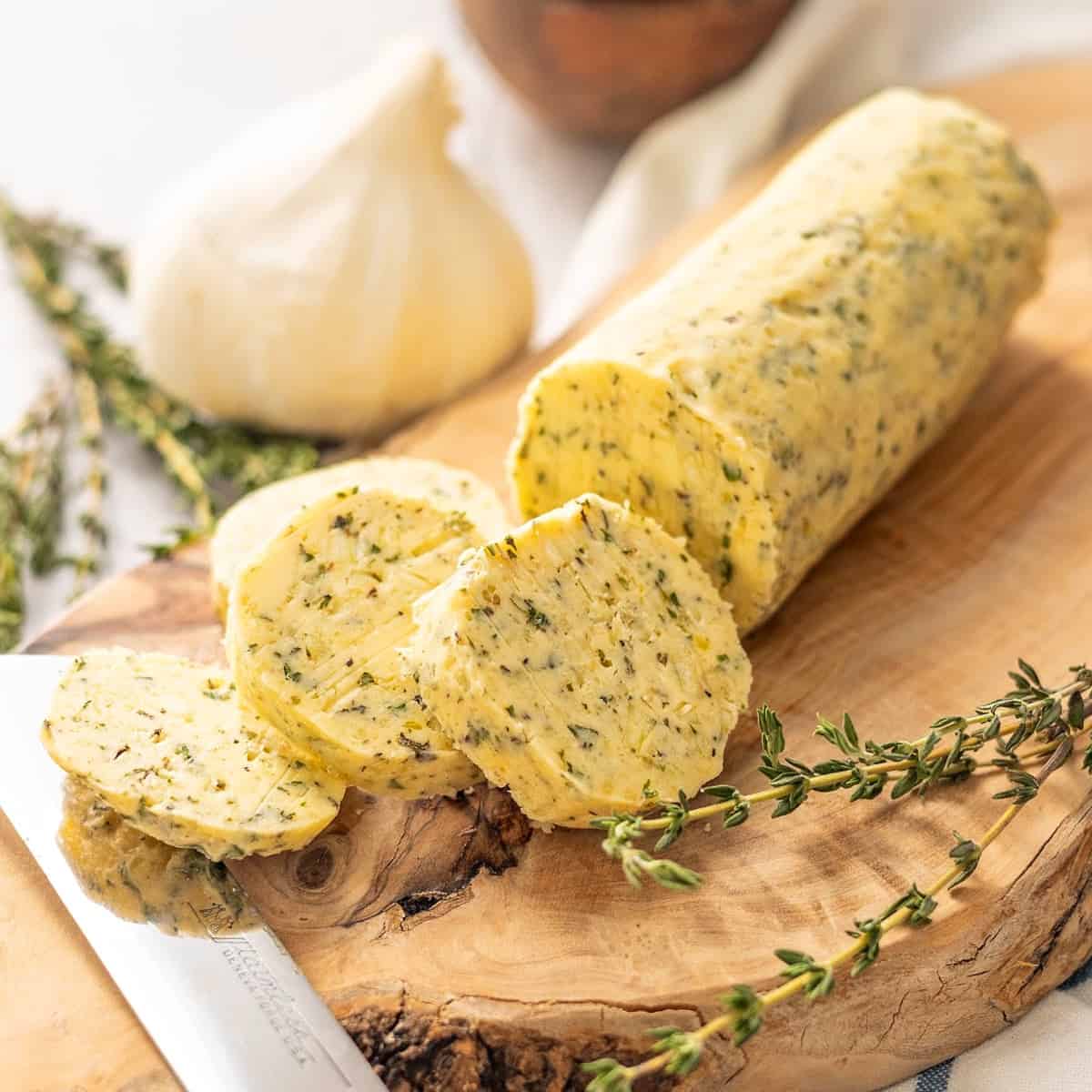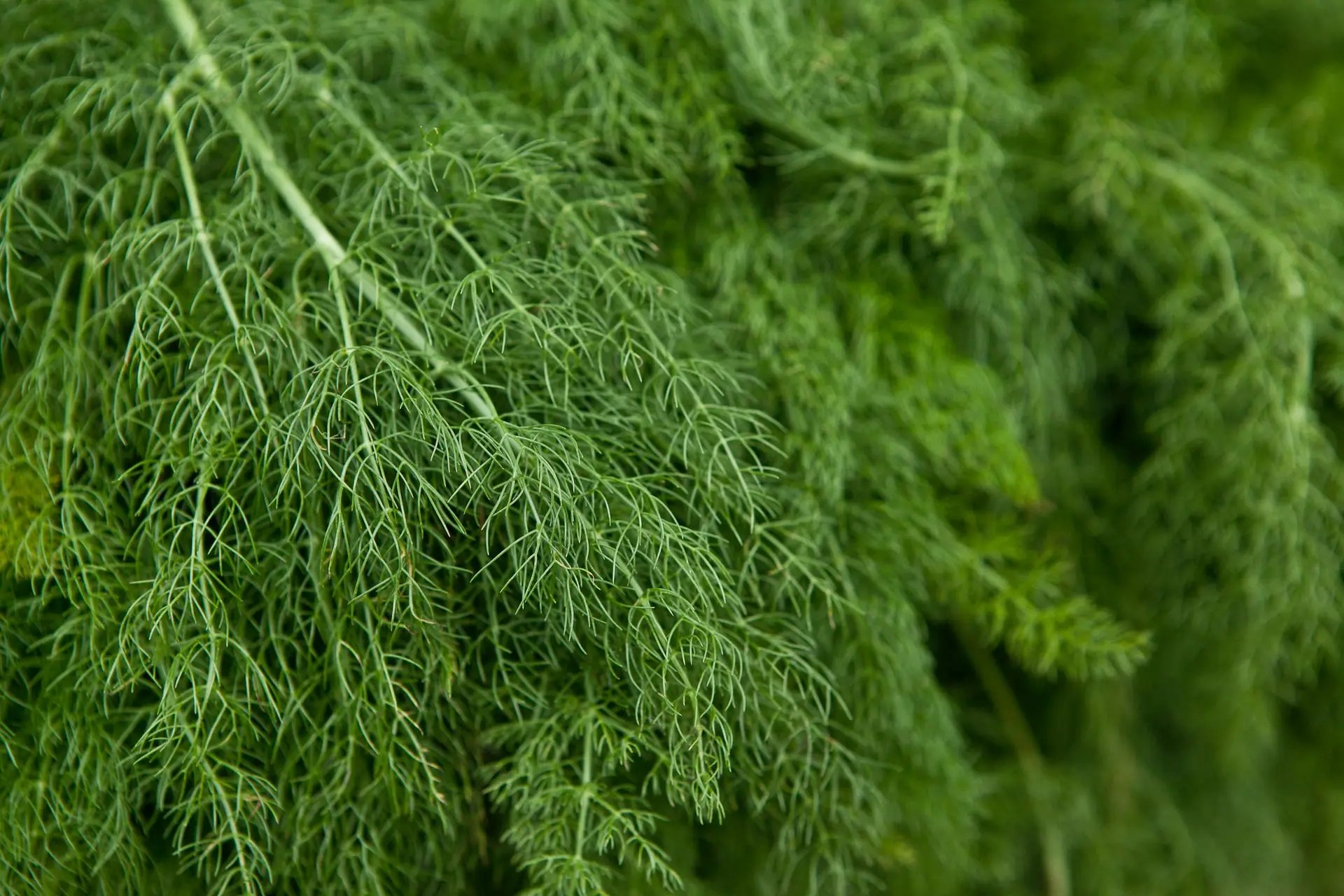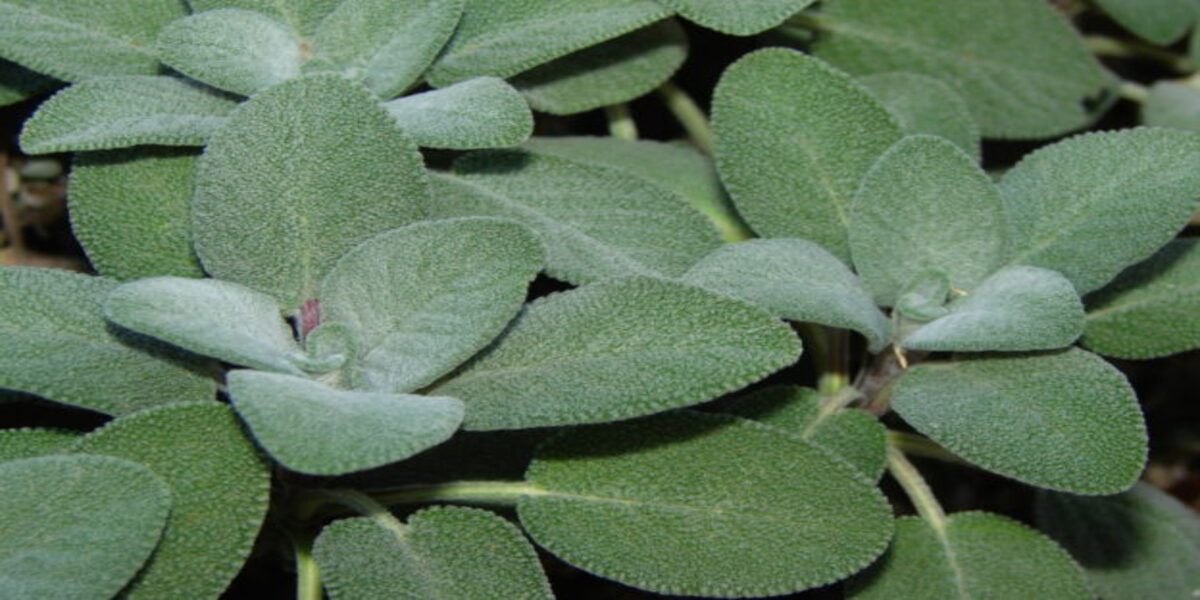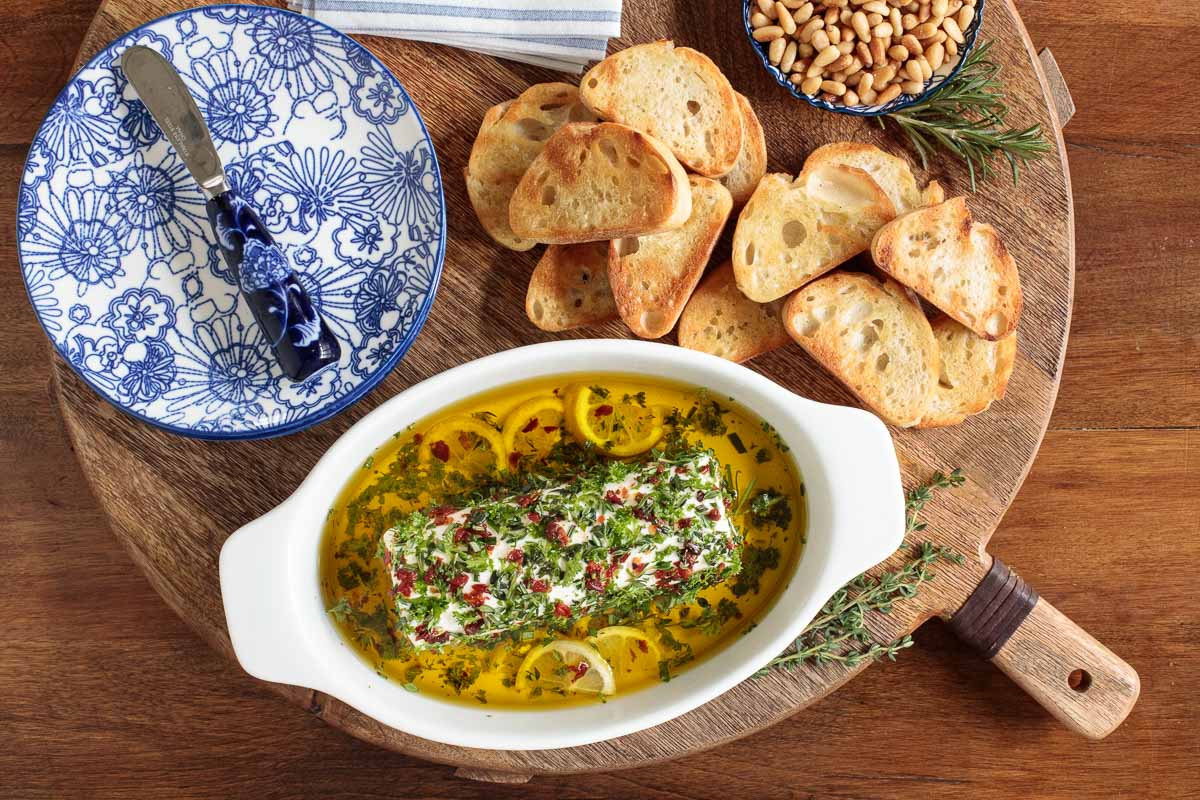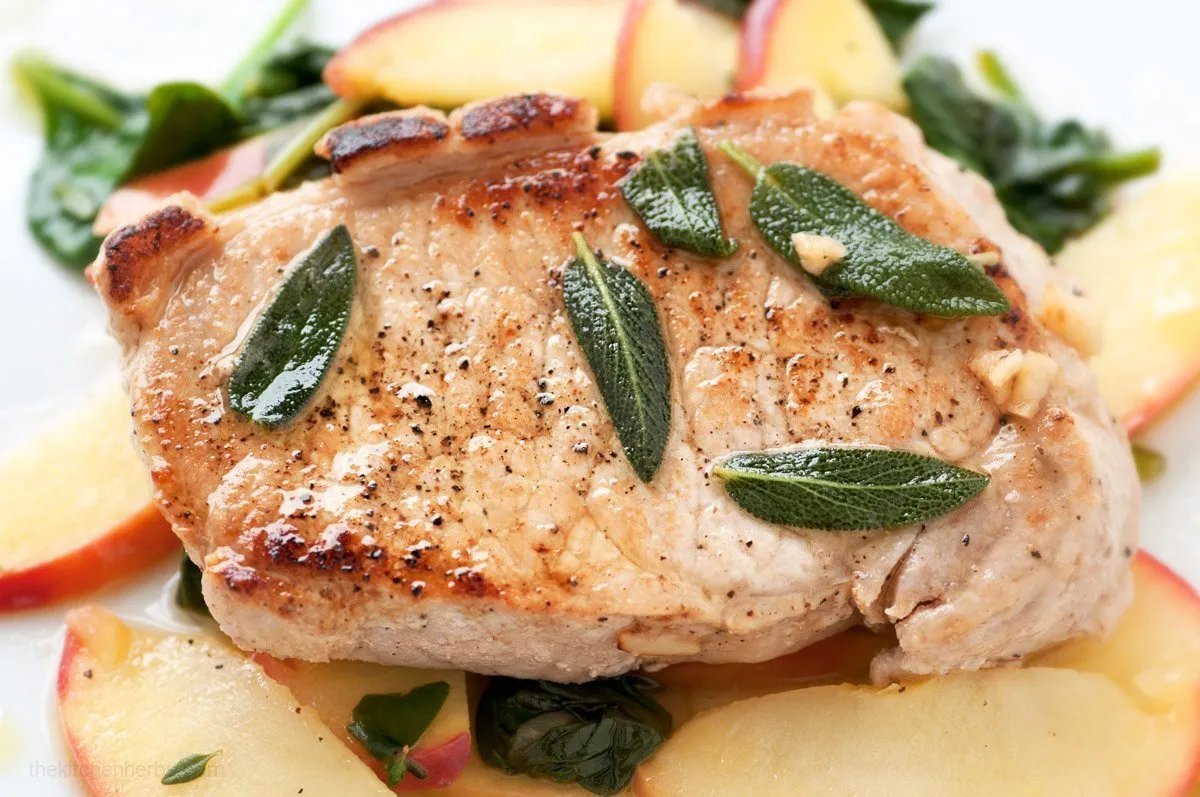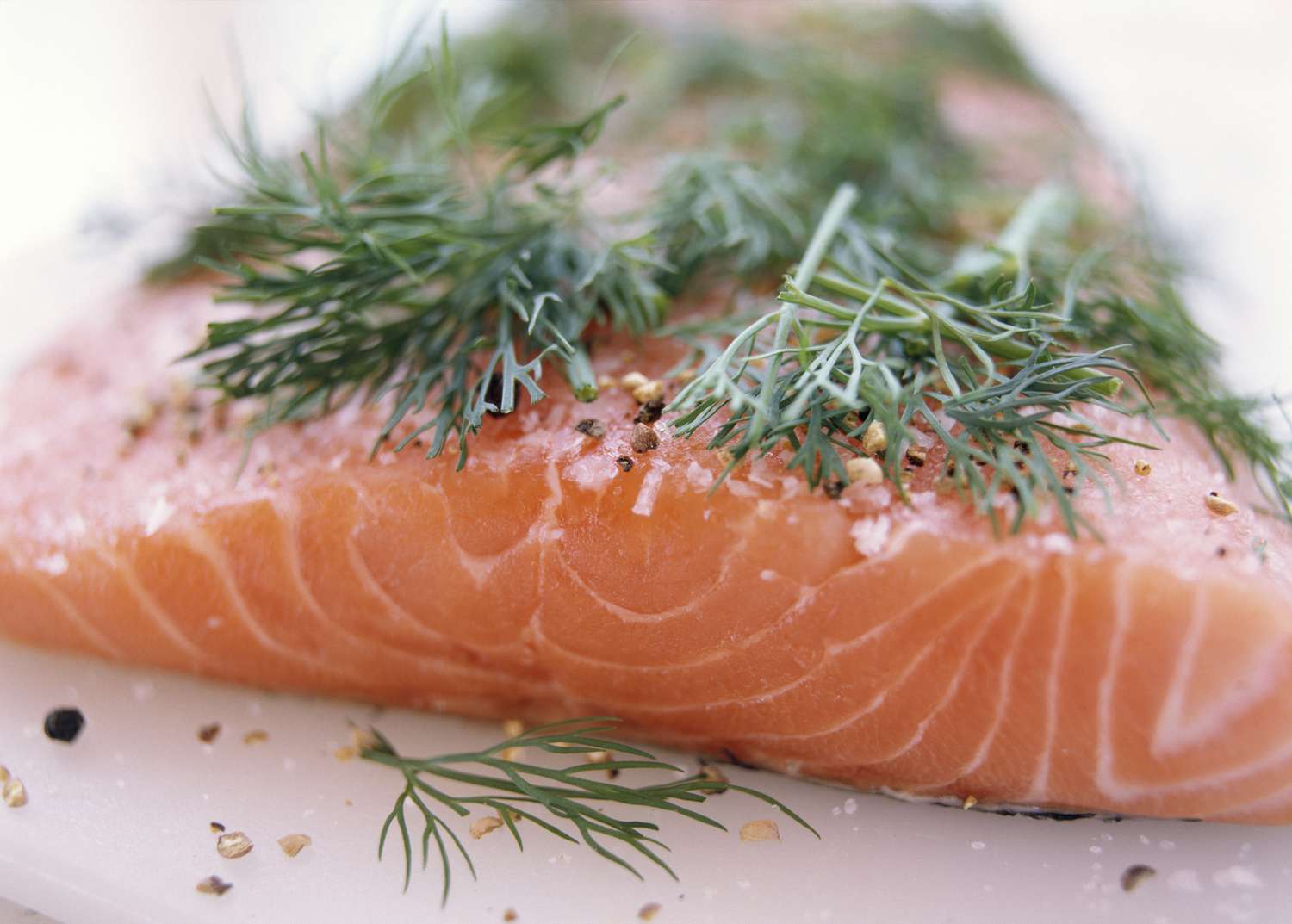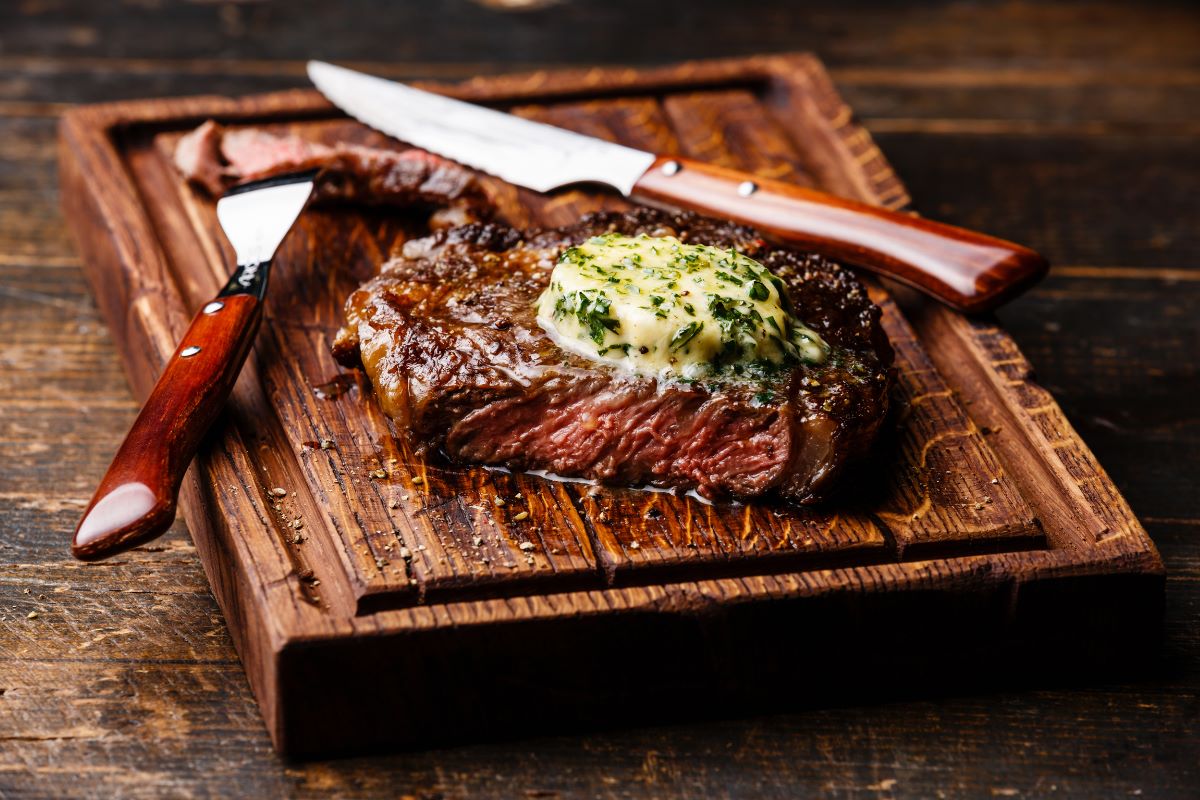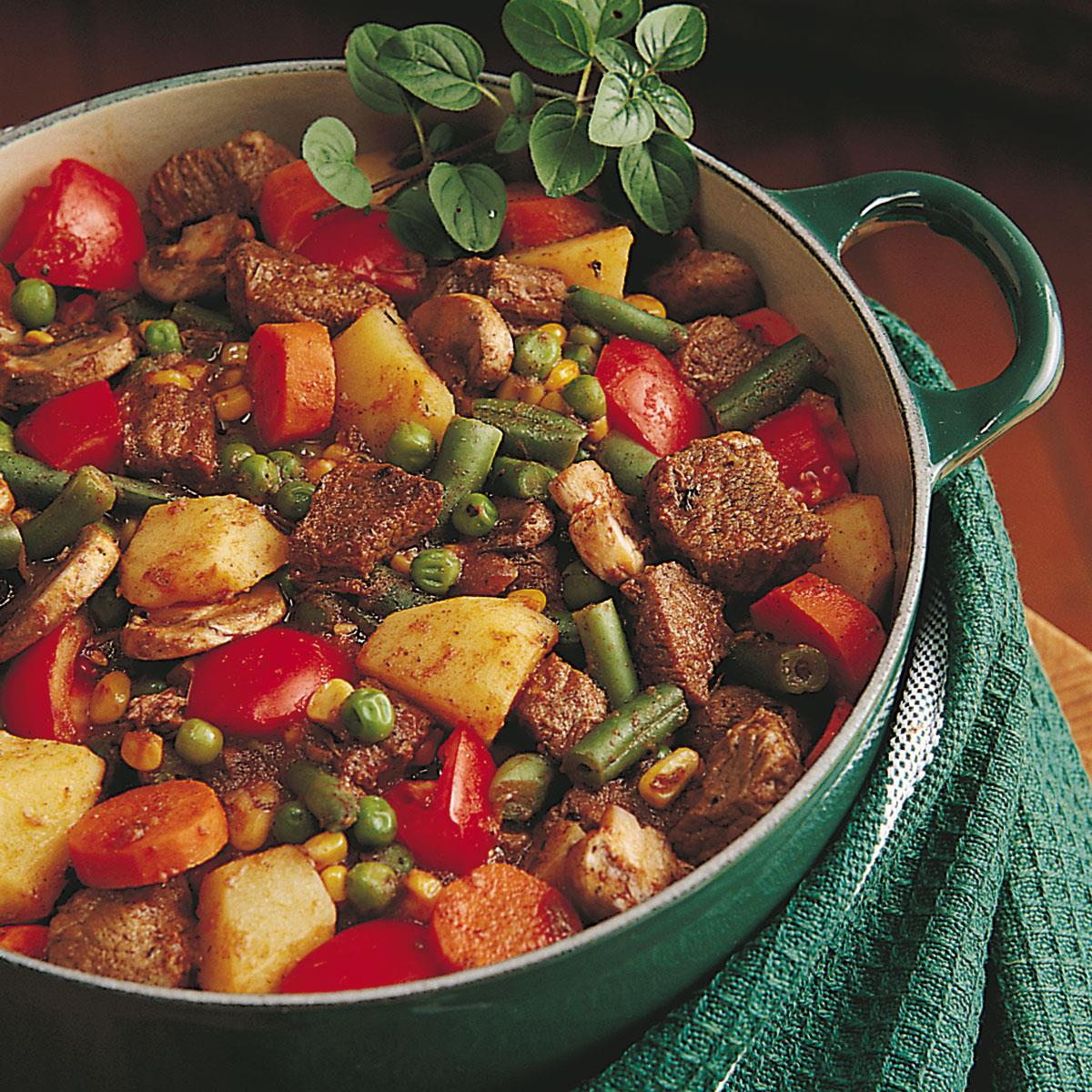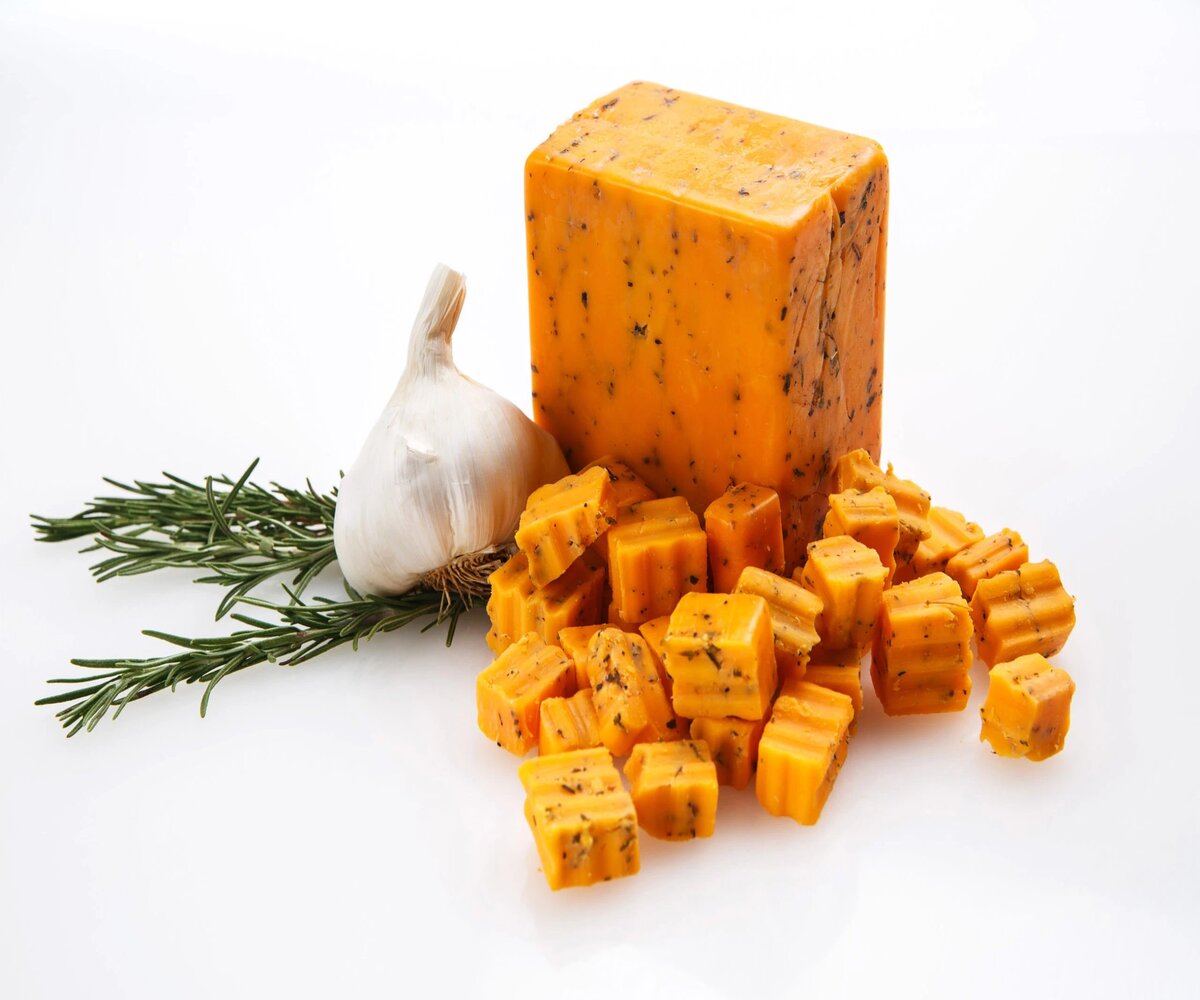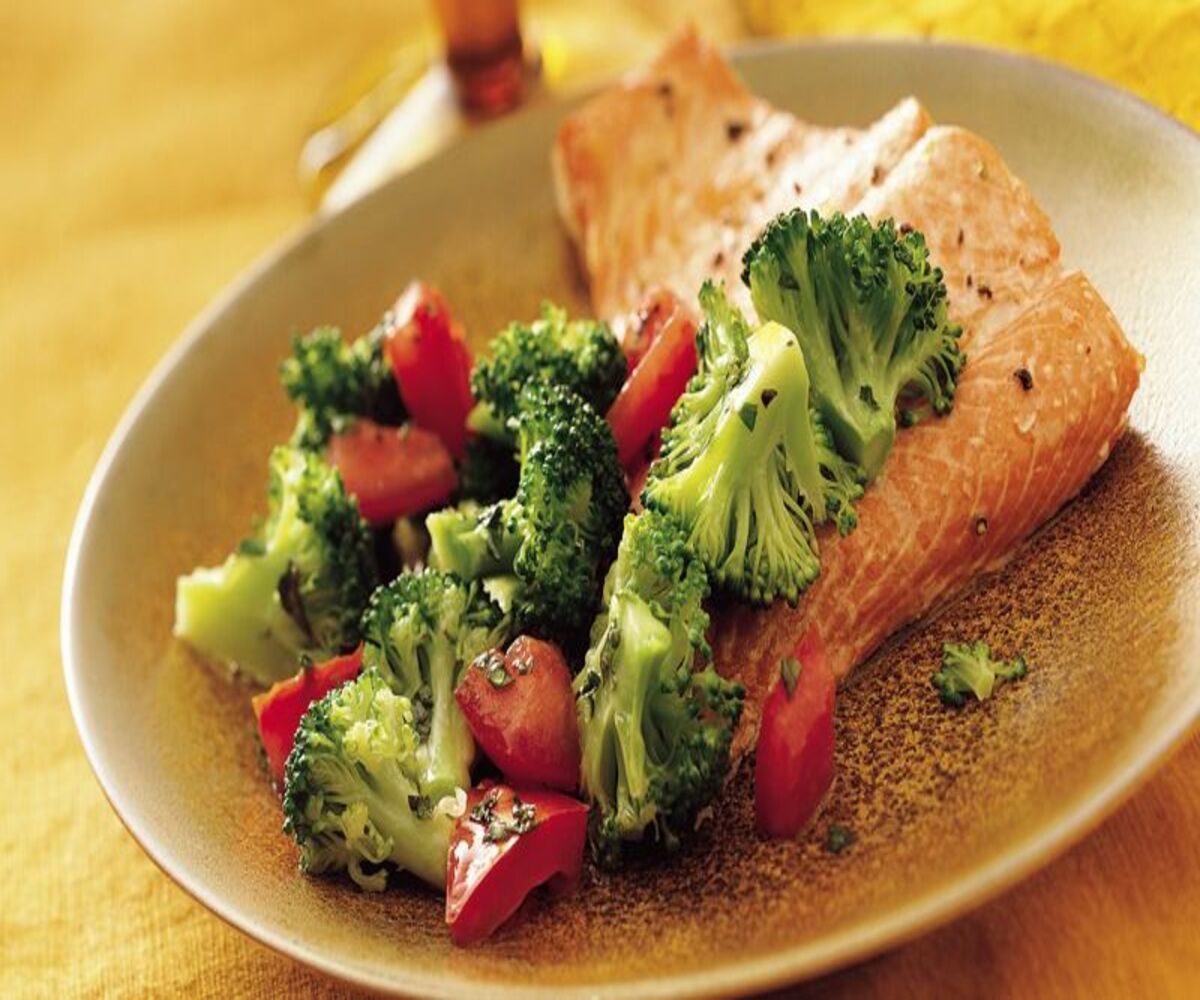Home>Gardening News and Trends>Gardening Trends>What Herbs Go Best With Mushrooms
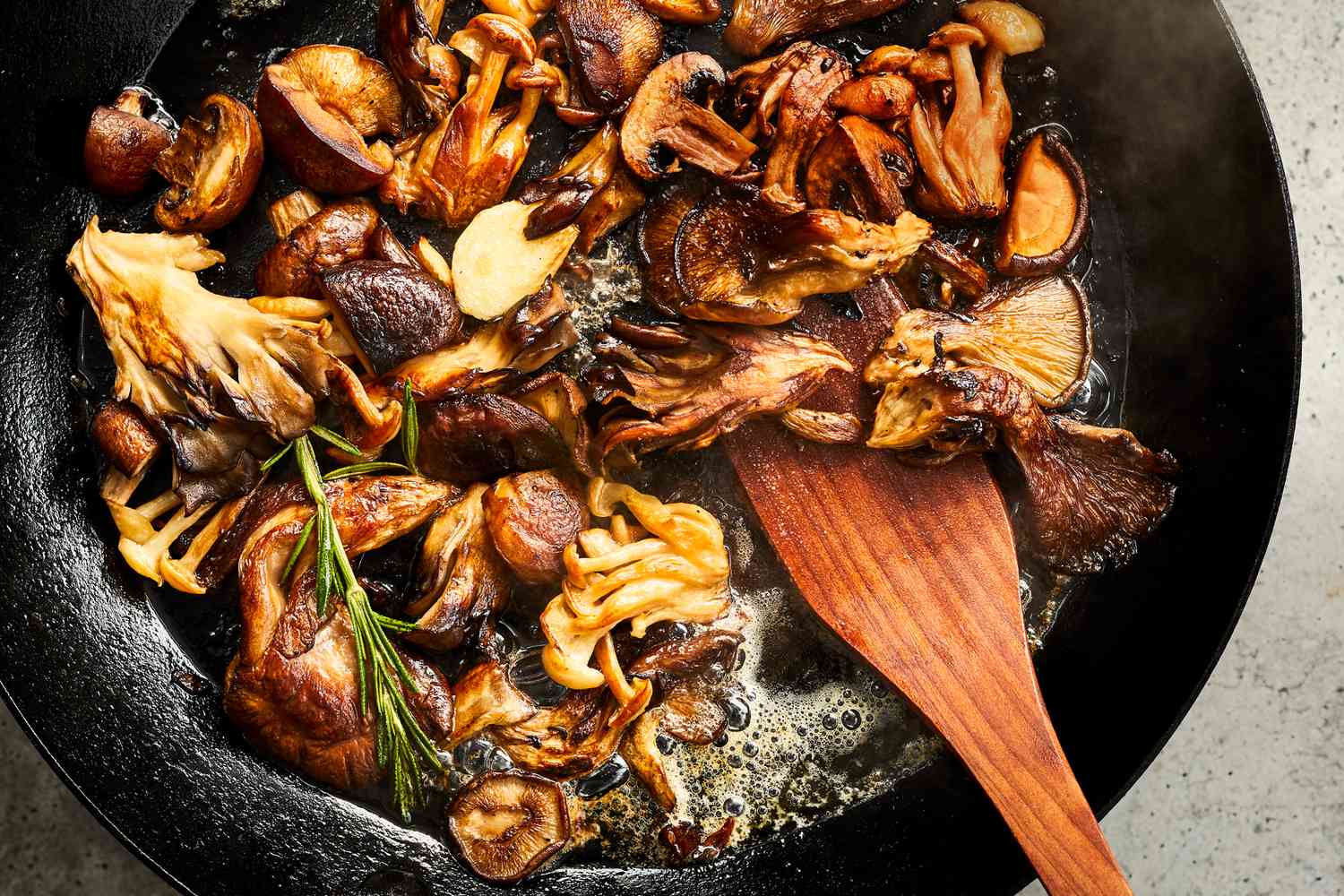

Gardening Trends
What Herbs Go Best With Mushrooms
Modified: January 22, 2024
Discover the latest gardening trends and learn which herbs pair perfectly with mushrooms. Enhance your dishes with these flavorful combinations and elevate your culinary skills.
(Many of the links in this article redirect to a specific reviewed product. Your purchase of these products through affiliate links helps to generate commission for Chicagolandgardening.com, at no extra cost. Learn more)
Table of Contents
Introduction
Mushrooms are a versatile and nutritious ingredient that can elevate any dish. Their earthy flavors and unique textures make them a favorite among chefs and home cooks alike. While mushrooms can shine on their own, adding herbs to mushroom dishes can take them to a whole new level of deliciousness. The right combination of herbs can enhance the flavors of mushrooms, adding depth and complexity to the dish.
Herbs have been used in cooking for centuries, prized for their aromatic and medicinal properties. When used in conjunction with mushrooms, herbs not only enhance the taste but also offer a range of health benefits. They can improve digestion, boost the immune system, and provide an array of essential vitamins and minerals.
One of the primary benefits of using herbs with mushrooms is the ability to elevate the overall flavor profile of the dish. The combination of the rich umami taste of mushrooms with the herbal aromas creates a harmonious balance that tantalizes the taste buds. The right herbs can help to bring out the natural flavors of different mushroom varieties, making them even more enjoyable to eat.
Herbs also offer a visually pleasing element when added to mushroom dishes. Their vibrant colors and delicate leaves provide a pop of freshness and beauty, making the dish visually appealing. This makes them a favorite ingredient for plating and garnishing, ensuring that the dish not only tastes delicious but looks stunning as well.
Whether you’re cooking a hearty mushroom risotto, a flavorful stir-fry, or a savory mushroom soup, incorporating herbs can take your dishes to new heights. The key is to understand which herbs pair best with different mushroom varieties and how to use them effectively in your cooking. In the following sections, we will explore popular herbs for enhancing mushroom flavors, learn about herb-mushroom pairings, discuss cooking techniques and herb combinations, and even offer tips on growing your own herbs to pair with mushrooms.
Benefits of Using Herbs with Mushrooms
Using herbs in conjunction with mushrooms not only enhances the taste but also provides a range of health benefits. Here are some of the key benefits of using herbs when cooking with mushrooms:
- Enhanced Flavor: The combination of mushrooms and herbs creates a symphony of flavors. Herbs add depth and complexity to the dish, balancing the earthiness of the mushrooms with their aromatic qualities. Whether it’s the fresh, citrusy notes of thyme or the warm, peppery undertones of rosemary, herbs can transform a simple mushroom dish into a culinary masterpiece.
- Health Boost: Certain herbs, such as oregano, basil, and parsley, are packed with powerful antioxidants that can help fight inflammation and protect against various diseases. Adding these herbs to mushroom dishes can provide an extra dose of vitamins, minerals, and phytochemicals, boosting your overall health and well-being.
- Digestive Aid: Many herbs, including sage, thyme, and fennel, have digestive properties that can help improve the digestion of mushroom-rich meals. These herbs can stimulate digestion, reduce bloating, and relieve gas, making them a valuable addition to mushroom recipes.
- Immune Support: Several herbs, such as garlic, ginger, and turmeric, are known for their immune-boosting properties. By incorporating these herbs into your mushroom dishes, you can strengthen your immune system, helping your body fight off infections and diseases.
- Antimicrobial Properties: Some herbs, including oregano and thyme, possess antimicrobial properties that can help inhibit the growth of harmful bacteria and fungi. When combined with mushrooms, these herbs not only enhance the flavor but also provide a natural defense against foodborne pathogens.
- Stress Relief: Certain herbs, such as lavender and chamomile, have calming properties that can help reduce stress and promote relaxation. Including these herbs in your mushroom dishes can create a soothing and comforting dining experience.
By incorporating herbs into your mushroom recipes, you not only elevate the flavors but also gain a range of health benefits. The next section will explore popular herbs that pair well with mushrooms, allowing you to experiment with different flavors and create exceptional dishes. So let’s dive into the world of herb-mushroom combinations!
Popular Herbs for Enhancing Mushroom Flavors
When it comes to enhancing the flavors of mushrooms, certain herbs are particularly well-suited to complement their earthy taste. These herbs can add depth, aroma, and brightness to mushroom dishes. Here are some popular herbs that can take your mushroom recipes to the next level:
- Thyme: Thyme is a versatile herb that pairs beautifully with mushrooms. Its subtle, earthy flavor complements the natural umami taste of mushrooms. Whether fresh or dried, thyme adds depth and complexity to mushroom soups, stews, and roasted dishes.
- Rosemary: With its robust and aromatic flavor, rosemary adds a delightful fragrance and a hint of pine to mushroom dishes. Whether used in marinades, sauces, or roasted with mushrooms, rosemary provides a wonderful herbal note that balances the earthiness of the mushrooms.
- Sage: Sage has a savory and slightly peppery flavor that pairs exceptionally well with mushrooms. Its distinct taste adds richness and warmth to mushroom risottos, stuffings, and sautéed dishes. Whether used fresh or dried, sage brings a unique flavor to the table.
- Parsley: Known for its bright and fresh flavor, parsley complements mushrooms with its mild, slightly peppery taste. It adds a pop of color and freshness to mushroom salads, pasta dishes, and omelettes, balancing out the richness of the mushrooms.
- Chives: Chives provide a delicate onion-like flavor to mushroom recipes. Their mild, oniony taste adds a subtle touch to mushroom soups, scrambled eggs, and creamy mushroom sauces. Chives are best used fresh to retain their vibrant flavor.
- Dill: Dill’s unique flavor profile, with hints of anise and freshness, pairs surprisingly well with mushrooms. It adds a bright and tangy note to mushroom salads, roasted vegetables, and creamy mushroom sauces.
- Oregano: With its robust and slightly bitter flavor, oregano adds depth to mushroom dishes. Whether used fresh or dried, oregano enhances the earthy flavors of mushrooms in pasta sauces, pizzas, and roasted vegetable medleys.
- Basil: Basil’s sweet and aromatic flavor complements mushrooms with its fresh and vibrant taste. It works well in mushroom-based sauces, pasta dishes, and stir-fries, adding a touch of Mediterranean flair.
Of course, these are just a few examples of herbs that pair well with mushrooms. Feel free to experiment with different herbs to find your own unique flavor combinations. The next section will explore pairing herbs with different mushroom varieties, allowing you to create dishes that highlight the flavors of both the mushrooms and the herbs.
Pairing Herbs with Different Mushroom Varieties
Each variety of mushroom has its own distinct flavor profile, which can be further enhanced by pairing them with the right herbs. By understanding the unique characteristics of different mushroom varieties, you can create harmonious flavor combinations. Here are some popular mushroom varieties along with the herbs that best complement their flavors:
- Button Mushrooms: Button mushrooms have a mild and earthy flavor that pairs well with a variety of herbs. Thyme, rosemary, parsley, and chives are excellent choices for enhancing the taste of button mushrooms. These herbs add depth and freshness, enhancing the subtle flavors of the mushrooms.
- Portobello Mushrooms: Portobello mushrooms have a rich and meaty texture, making them ideal for grilling or roasting. They pair well with herbs such as rosemary, thyme, and oregano. These herbs add a robust flavor that complements the meatiness of portobello mushrooms.
- Shiitake Mushrooms: Shiitake mushrooms have a pronounced earthy and smoky flavor that can benefit from herbs with a complementary taste. Thyme, garlic, ginger, and scallions work well with shiitake mushrooms, adding depth and enhancing their umami flavors.
- Oyster Mushrooms: Oyster mushrooms have a delicate and slightly sweet taste. Herbs like thyme, basil, and dill pair beautifully with oyster mushrooms, adding a fresh and aromatic element to their flavor profile.
- Chanterelle Mushrooms: Chanterelle mushrooms have a unique and fruity flavor, often described as apricot-like. Herbs that go well with chanterelles include tarragon, parsley, and chives. These herbs enhance the sweet and delicate taste of chanterelle mushrooms.
- Porcini Mushrooms: Porcini mushrooms have a rich and nutty flavor that can be elevated with herbs that have a complementary earthiness. Herbs like thyme, rosemary, sage, and parsley work exceptionally well with porcini mushrooms, intensifying their unique flavors.
- Maitake Mushrooms: Maitake mushrooms have a robust and earthy taste, making them a great base for hearty dishes. Thyme, rosemary, oregano, and sage can enhance the earthiness of maitake mushrooms, adding depth and complexity to the overall flavor.
These are just a few examples of herb-mushroom pairings, but feel free to experiment and find your own personal favorites. By understanding the flavor profiles of different mushroom varieties and the complementary qualities of various herbs, you can create dishes that highlight the best of both ingredients. The next section will explore different cooking techniques and herb combinations to create mouthwatering mushroom dishes.
Cooking Techniques and Herb Combinations for Mushroom Dishes
When it comes to cooking mushroom dishes, the right combination of herbs and cooking techniques can make all the difference in terms of flavor and texture. Here are some popular cooking techniques and herb combinations that can take your mushroom dishes to a whole new level:
- Sautéing: Sautéing mushrooms is a classic cooking technique that brings out their natural flavors and enhances their texture. For a simple sautéed mushroom dish, try combining garlic, thyme, and parsley. The garlic adds a savory note, while thyme and parsley add freshness and depth.
- Roasting: Roasting mushrooms intensifies their flavors and provides a caramelized exterior. For roasted mushrooms, consider using rosemary, garlic, and oregano. The aromas of rosemary and garlic complement the earthy taste of mushrooms, while oregano adds a touch of herbal brightness.
- Grilling: Grilled mushrooms have a smoky and charred flavor that pairs well with certain herbs. Marinate the mushrooms in a mixture of balsamic vinegar, olive oil, thyme, and rosemary before grilling. These herbs add depth and aroma, enhancing the grilled flavor of the mushrooms.
- Stir-frying: Stir-frying mushrooms allows you to quickly cook them while retaining their natural moisture and texture. For a flavorful stir-fry, use a combination of ginger, garlic, and scallions. The ginger adds a zing, while the garlic and scallions provide savory depth to the dish.
- Creamy Mushroom Sauce: For a rich and creamy mushroom sauce, consider using a combination of sage, thyme, and parsley. The earthiness of sage and thyme complements the mushrooms, while parsley adds a fresh and bright flavor to the sauce.
- Mushroom Risotto: Risotto is a delightful way to showcase the flavors of mushrooms. For a mushroom risotto, infuse the dish with the flavors of rosemary, thyme, and sage. The aromatic herbs add depth and richness to the risotto, creating a satisfying and flavorful dish.
These are just a few examples of cooking techniques and herb combinations for mushroom dishes. Feel free to get creative and experiment with different herbs and cooking methods. The key is to find a balance of flavors that enhances the unique qualities of mushrooms while tantalizing your taste buds. Now, let’s explore some tips for growing your own herbs to pair with mushrooms.
Tips for Growing Your Own Herbs to Pair with Mushrooms
One of the best ways to ensure a steady supply of fresh herbs for your mushroom dishes is to grow your own herb garden. Growing herbs at home is not only rewarding but also allows you to have easy access to a variety of flavors to pair with your mushrooms. Here are some tips for successfully growing your own herbs:
- Select the right location: Herbs generally thrive in sunny locations with well-draining soil. Choose a spot in your garden or balcony that receives at least 6 hours of sunlight per day. If you have limited space, consider growing herbs in containers or hanging baskets.
- Start from seeds or seedlings: You have the option of starting your herb garden from seeds or purchasing young seedlings from a local nursery. Starting from seeds gives you a wider variety to choose from, while seedlings offer a head start. Follow the instructions on the seed packets or consult with the nursery for optimal planting times and methods.
- Provide proper soil and watering: Herbs generally prefer well-draining soil, so ensure that your planting containers or garden bed have good drainage. Water regularly, but be careful not to overwater, as some herbs prefer slightly drier soil. A good rule of thumb is to water when the top inch of soil feels dry.
- Harvest properly: Harvesting fresh herbs at the right time ensures optimal flavor and encourages further growth. Snip the leaves or stems just above a set of leaves to encourage new growth. Avoid harvesting more than one-third of the plant at a time to allow it to replenish itself.
- Plan for succession planting: To have a continuous supply of herbs, plan for succession planting. This means planting new herb seeds or seedlings every few weeks, staggered throughout the growing season. This way, you’ll have a steady rotation of fresh herbs for your mushroom dishes.
- Experiment with different varieties: Growing your own herbs gives you access to a wide array of varieties that may not be available at your local grocery store. Experiment with different types of thyme, basil, rosemary, and other herbs to discover unique flavors that pair exceptionally well with mushrooms.
- Dry or preserve excess herbs: If you find yourself with an excess of herbs, consider drying or preserving them for future use. Hang herb bundles upside down in a well-ventilated area to air dry, or store them in an airtight container after freezing or using other preservation techniques. This way, you can enjoy the flavors of your homegrown herbs all year round.
Growing your own herbs not only ensures a fresh and abundant supply but also allows you to fully enjoy the flavors and aromas that they bring to your mushroom dishes. With a little care and attention, you can have a thriving herb garden right at your fingertips.
Now that you have learned about growing herbs, it’s time to start incorporating them into your mushroom recipes and creating delicious culinary masterpieces!
Conclusion
Using herbs in combination with mushrooms can elevate your culinary creations to new heights. The right herbs can enhance the flavors of mushrooms, adding depth, aroma, and visual appeal to your dishes. Whether you’re sautéing button mushrooms with thyme and parsley or grilling portobello mushrooms with rosemary and oregano, the herb-mushroom combinations are endless.
Not only do herbs enhance the taste of mushrooms, but they also offer a range of health benefits. Many herbs possess antioxidant, anti-inflammatory, and immune-boosting properties, making them valuable additions to your diet.
Understanding which herbs pair best with different mushroom varieties is crucial for creating harmonious flavor combinations. Each mushroom variety has its unique taste, and by pairing them with the right herbs, you can amplify their natural flavors.
Experimenting with various cooking techniques, such as sautéing, roasting, or grilling, allows you to unleash the full potential of mushrooms and herbs. Additionally, growing your own herbs provides a convenient and cost-effective way to have a fresh supply of flavorsome herbs for your mushroom dishes. With the right care and attention, you can create a thriving herb garden right in your own home.
So, whether you’re a seasoned chef or an enthusiastic home cook, incorporating herbs into your mushroom recipes will undoubtedly add a new dimension of flavor and excitement to your culinary adventures. So go ahead and explore the world of herb-mushroom pairings, experiment with cooking techniques, and enjoy the delightful and wholesome flavors that these ingredients bring to the table.
